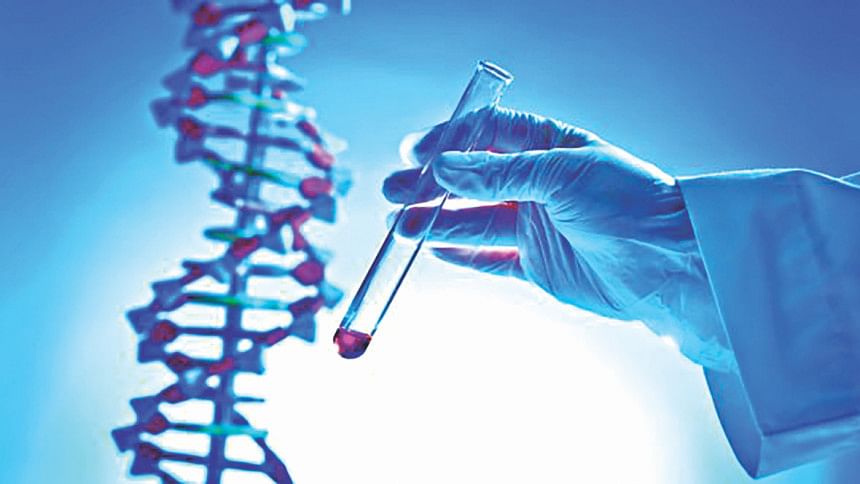The role of gene in health and diseases

Human genes help make them unique as the basis for inheritance. They are passed from parent to offspring and hold the DNA, the instruction for making proteins which do most of the work in cells. Genes go far in determining their physical traits — like eye colour and the colour and texture of hair. They are composed of strands of a molecule DNA and are located in single file within the chromosomes. The genetic message is encoded by the building blocks of the DNA, which are called nucleotides. Approximately 3 billion pairs of nucleotides are in the chromosomes of a human cell, and each person's genetic makeup has a sequence of nucleotides. This is mainly what makes us different from one another.
Scientists believe that every human has about 25,000 genes per cell. A mutation, or change, in any one of these genes can result in a disease. A genetic disease is caused by an abnormality in an individual's genome, the person's entire genetic makeup, resulting in changes in gene's instructions for making a protein and so the protein does not work properly or is missing entirely. The abnormality can range from minuscule to major - from a discrete mutation in a single base in the DNA of a single gene to a gross chromosome abnormality. Some genetic disorders are inherited from the parents, while other genetic diseases are caused by acquired changes or mutations in a pre-existing gene or group of genes. Mutation can occur either spontaneously or due to some environmental exposure. Intervention by gene therapy, the treatment or elimination of inherited diseases due to these mutations could become a reality.
The management of genetic disease can be divided into counselling, diagnosis, and treatment. The fundamental purpose of genetic counselling is to help the individual or family understand their risks and options and to empower them to make informed decisions.
Although effective treatments exist for some genetic diseases, for others there are none. A group of genetic disorders called inborn errors of metabolism, which result from genetic changes that disrupt the production of specific enzymes; treatments sometimes include dietary changes or replacement of the particular enzyme that is missing.
For other genetic conditions, therapeutic strategies are designed to improve particular signs and symptoms associated with the disorder. These approaches vary by disorder and are specific to an individual's health needs. For example, a genetic disorder associated with a heart defect might be treated with surgery to repair the defect. Conditions that are characterised by defective blood cell formation, such as sickle cell disease, can sometimes be treated with a bone marrow transplant.
Most treatment strategies for genetic disorders do not alter the underlying genetic mutation; however, a few disorders have been treated with gene therapy. This experimental technique involves changing a person's genes to prevent or treat a disease. Gene therapy carries the promise of cures for many diseases and for types of medical treatment that did not seem possible until recently. With its potential to eliminate and prevent hereditary diseases such as cystic fibrosis and haemophilia and its use as a possible cure for heart disease and cancer, gene therapy is a potential medical miracle-technique.
Dr Iftikhar Ahmed is a WHO Fellow and Head of the Department of Microbiology at Enam Medical College, Savar, Dhaka.
Email: [email protected]

 For all latest news, follow The Daily Star's Google News channel.
For all latest news, follow The Daily Star's Google News channel. 



Comments